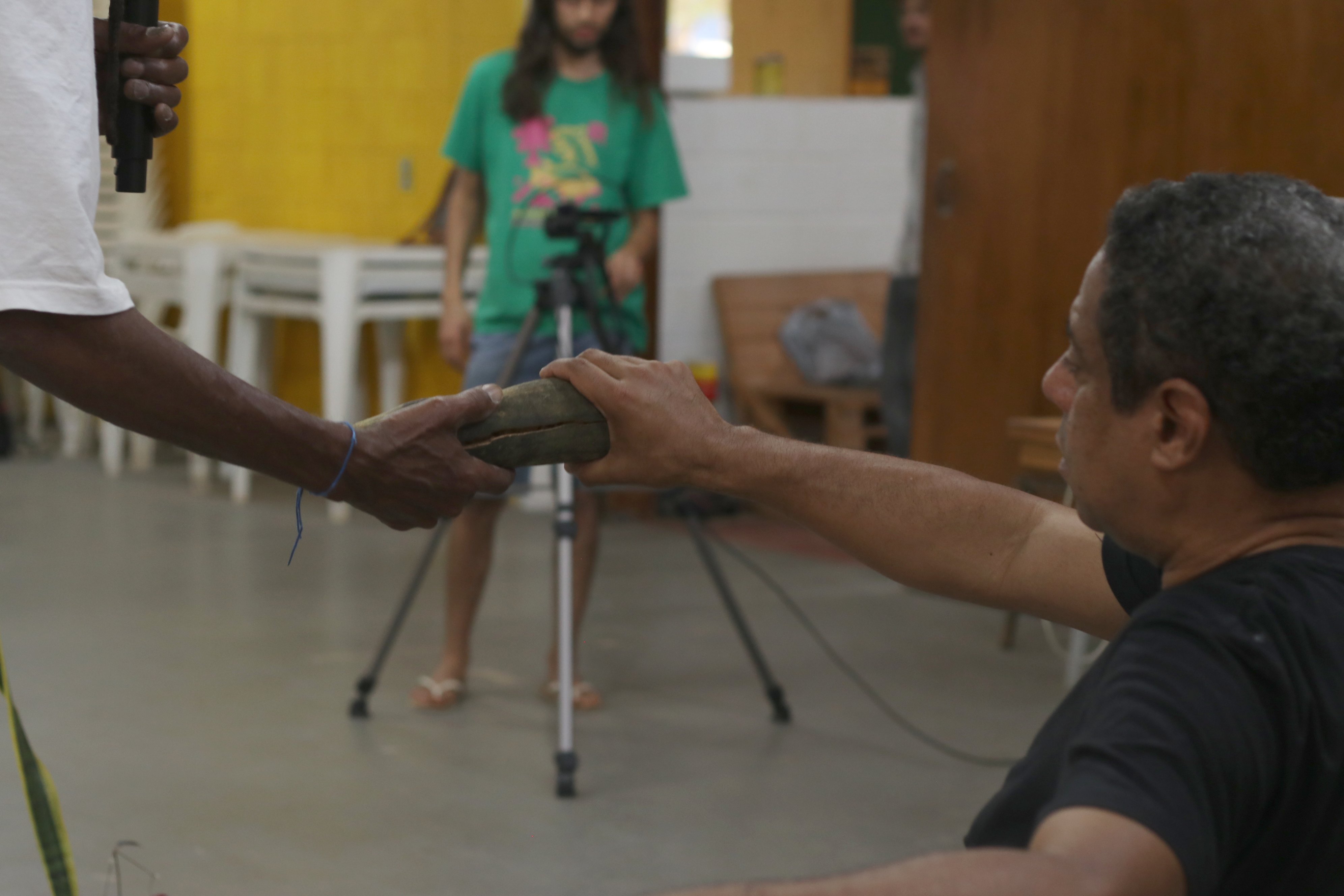Orlando Silva visits Tainã to discuss digital sovereignty
On August 23, federal deputy Orlando Silva visited Casa de Cultura Tainã to continue the conversation about digital sovereignty, which began in July of this year in Brasília at the Encontro Soberania Digital Já! (Digital Sovereignty Now! Meeting).
The discussion on digital sovereignty has been shaping the actions of collectives and organizations working with digital culture in Brazil. The goal is to curb the advance of Big Techs and propose policies that enable safe and sovereign data storage and sharing.
Tainã plays a fundamental role in this effort through the idea of technological appropriation. This concept emphasizes aligning technology use with community perspectives and demands, guiding digital management in a way that strengthens local autonomy.
This was the topic of the visit, which was marked by the expansion of the Free Community Data Center based at Tainã.

TC and Orlando holding a Mucua
Mucua is the name of the fruit of the baobab tree, an ancient tree that is a symbol of the Casa and one of the forces that mobilizes and reclaims African ancestry, inspired by the struggle of Palmares. It is through the baobab that network-building begins, weaving communication and sharing among territories across Brazil. This experience guides the creation not of a Parliamentary Front, but of a Digital Sovereignty Network, as a political strategy connected to and reflecting the struggle of those who came before.
During the conversation, Orlando Silva mentioned his meeting with Luciana Santos, Brazil's Minister of Science, Technology, and Innovation, where she spoke about the need to move beyond sovereign networks as a government project. He also discussed the need for decentralized infrastructure and for technology to be based on local knowledge, highlighting the increased relevance of the topic last month due to Trump's actions (increased tariffs on trade with Brazil). He further expressed interest in finding ways to operationalize initiatives like Tainã's, directing the subject to State Deputy Gustavo Petta, also present, as a joint formulation between federal powers at all levels, paying attention to the specificities of each territory and ensuring the longevity of the relationship between community and government.
Understanding the importance of the Digital Sovereignty Network and its articulation with policies that seek to build ongoing relationships with territories is the starting point. As stated in the conversation, politics and the Digital Sovereignty Network must become territorialized—territorialization is Brazil's strength!
The meeting was broadcast live on TV.TAINA.NET.BR. It can be watched in the recordings section.
